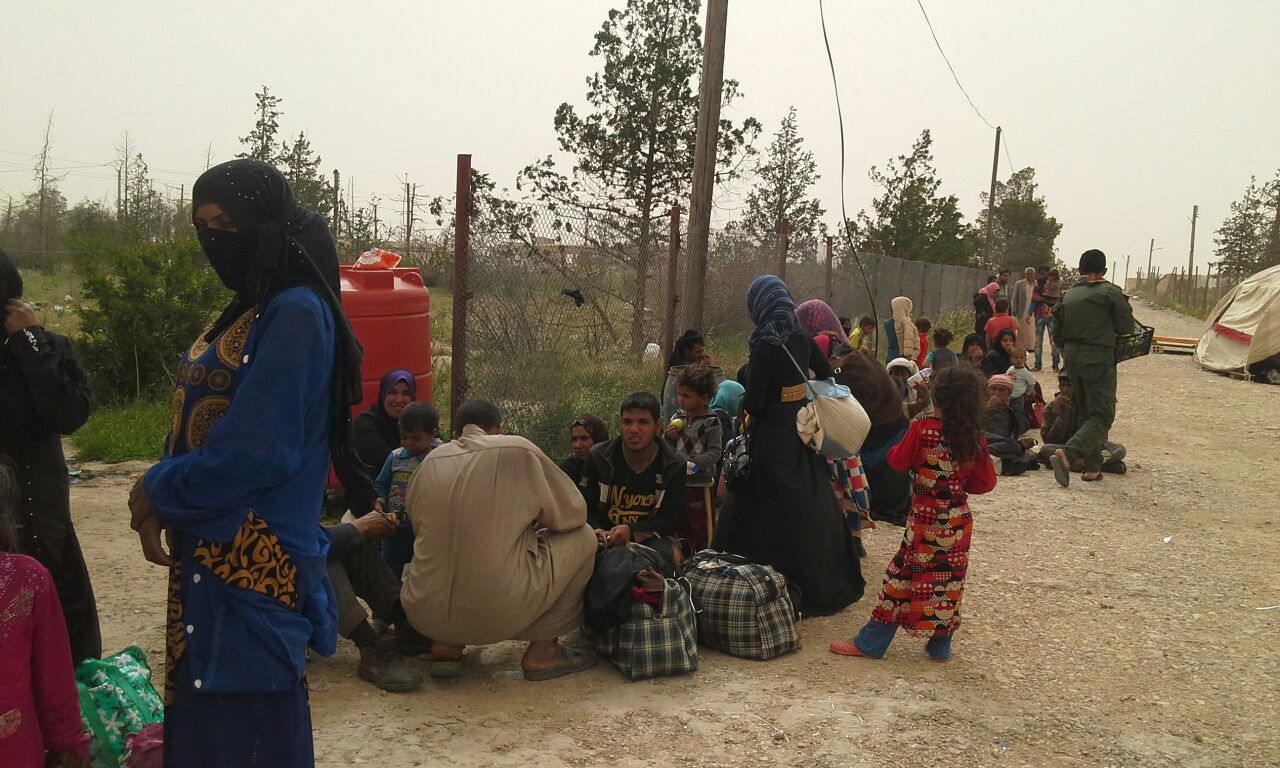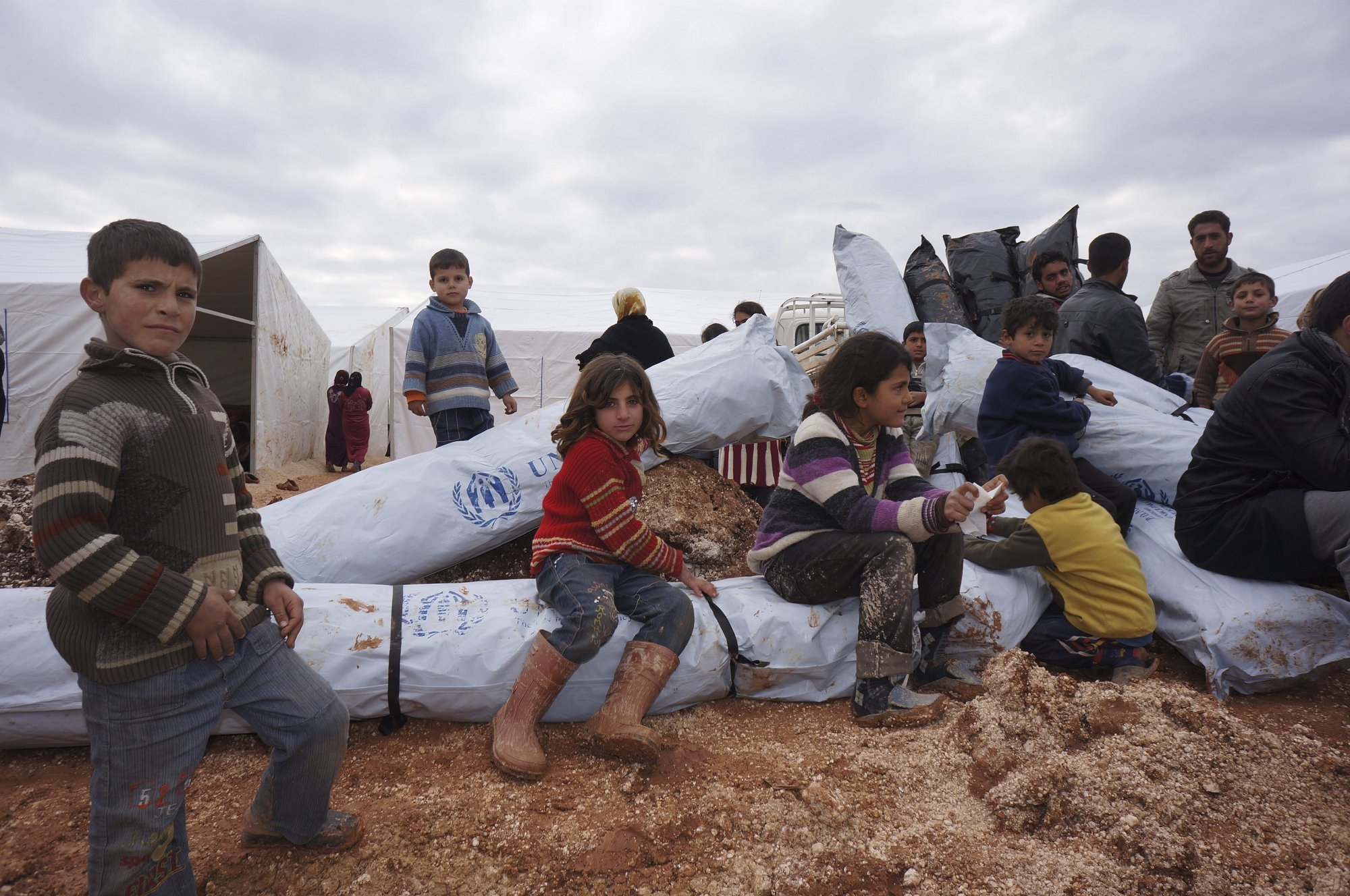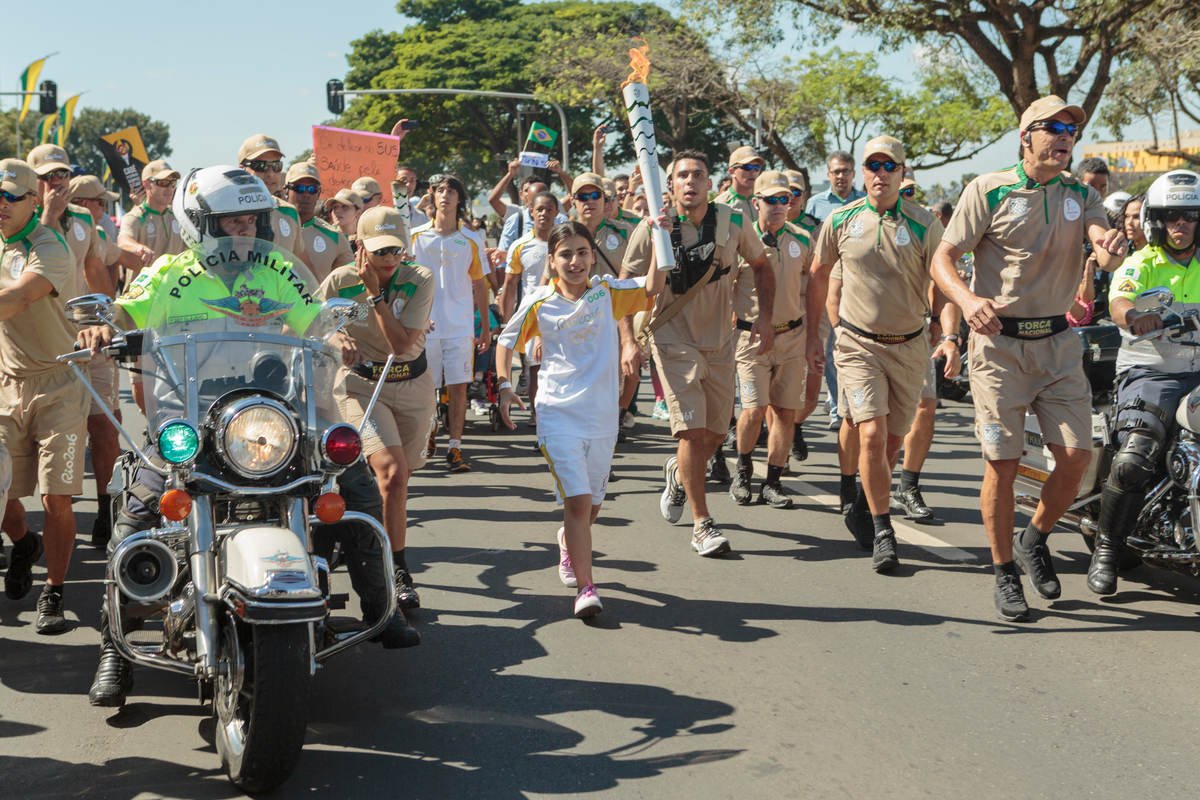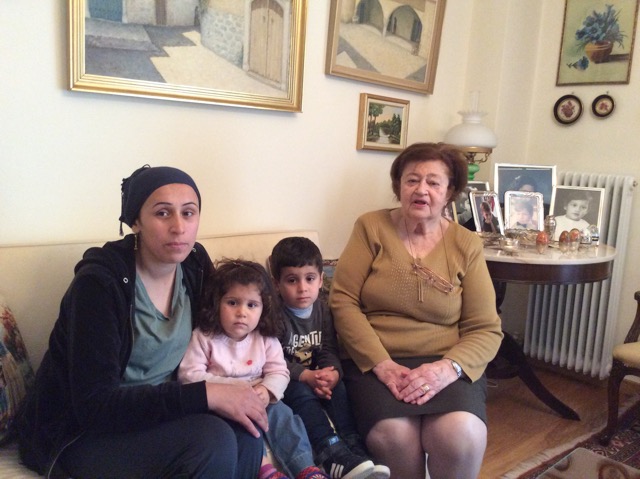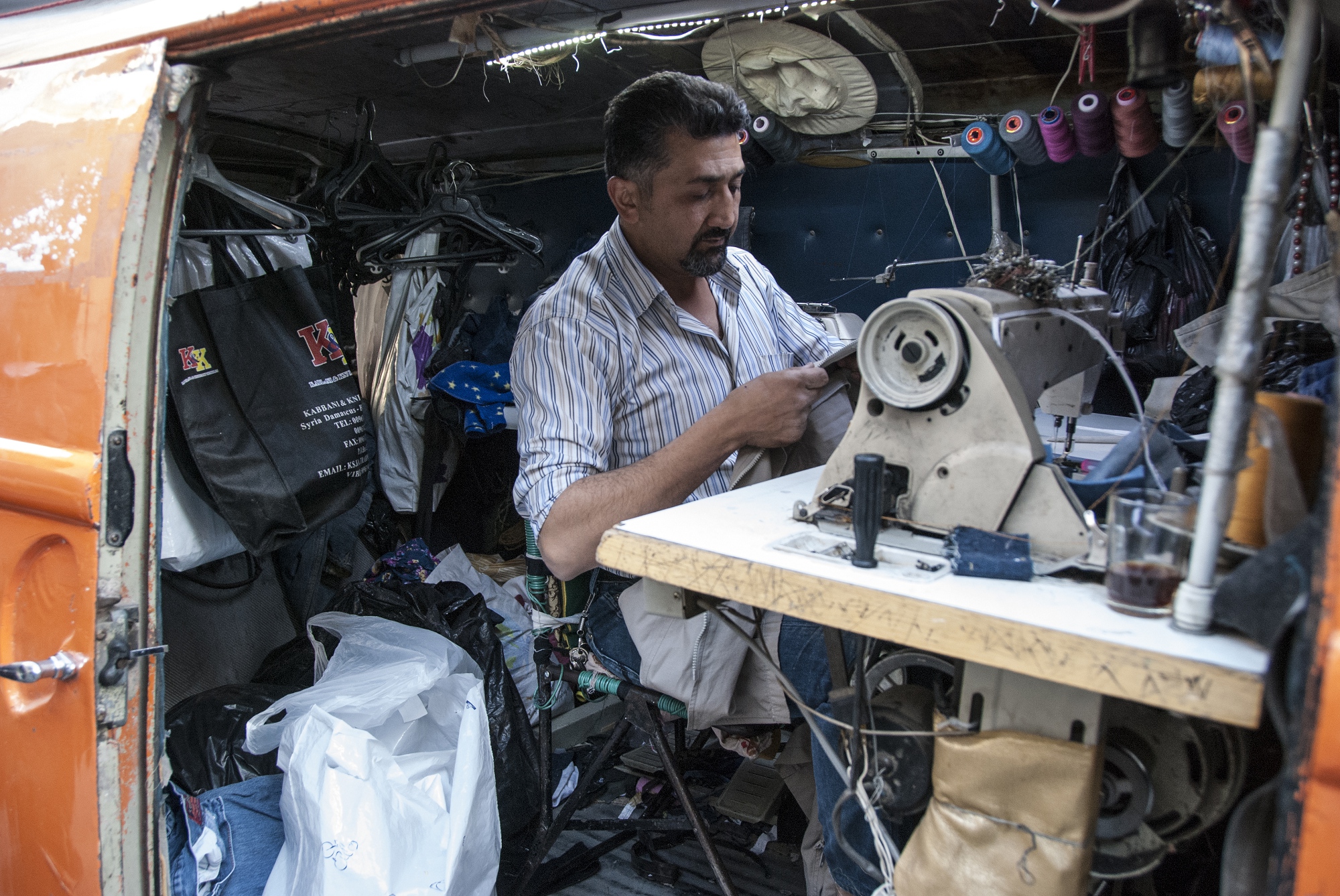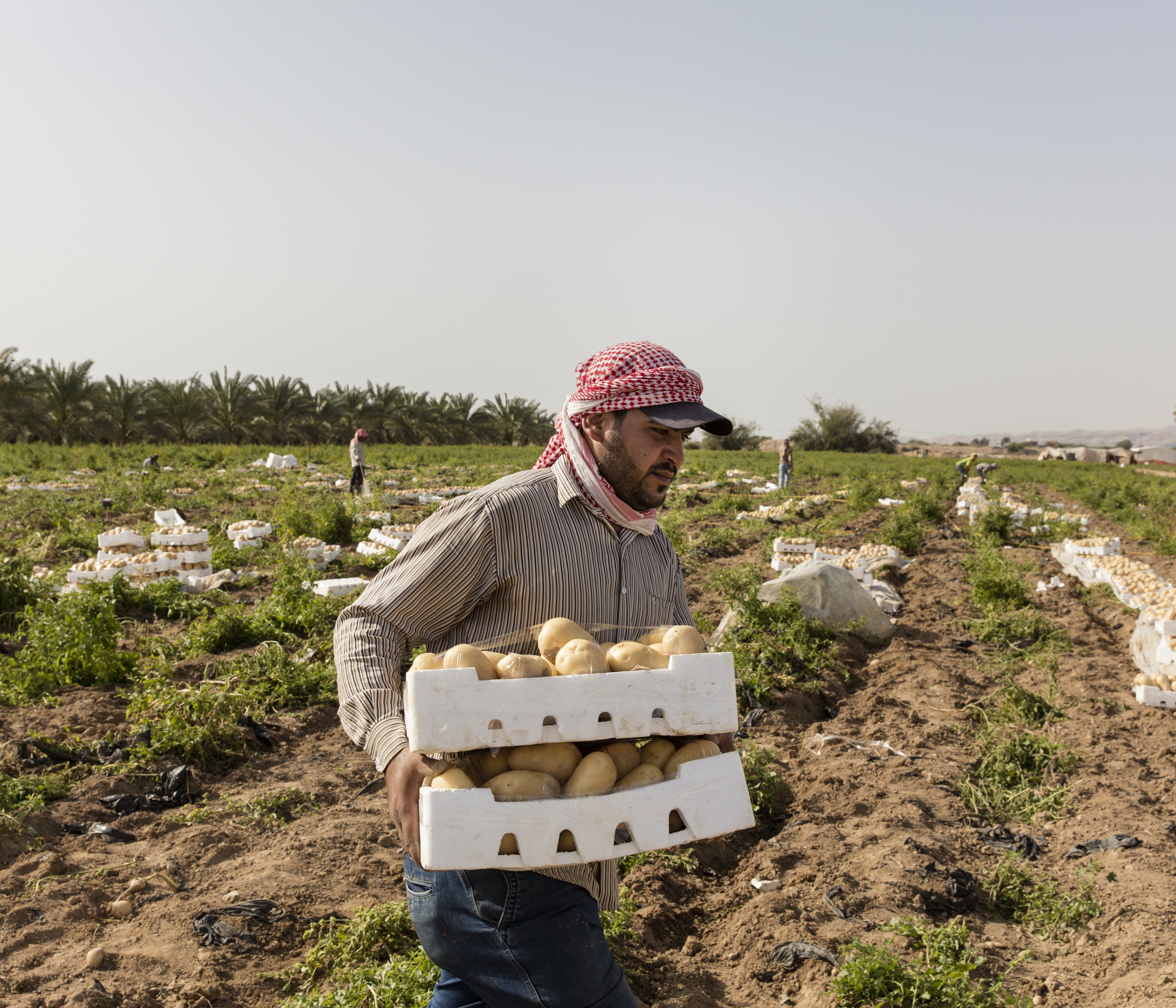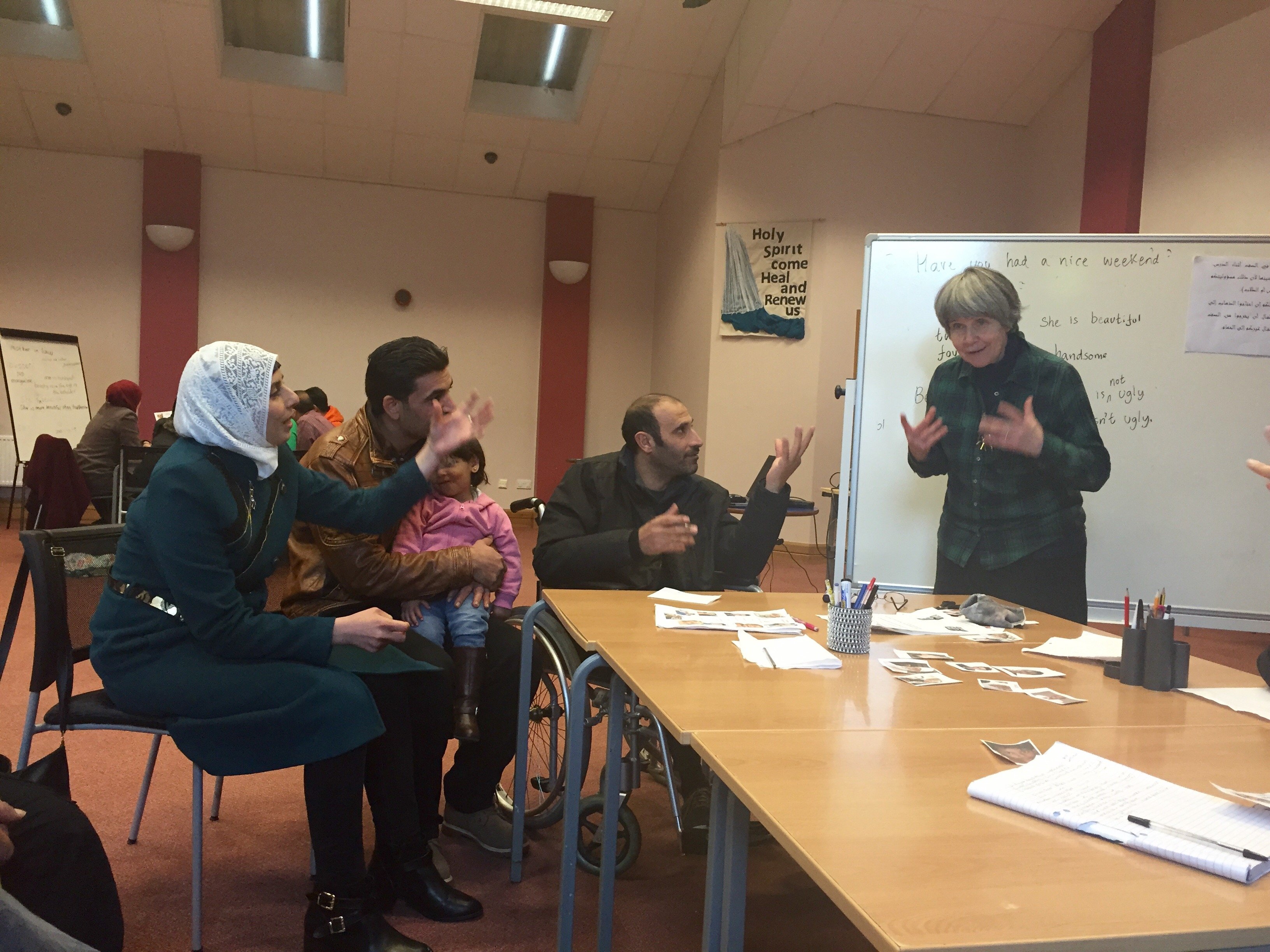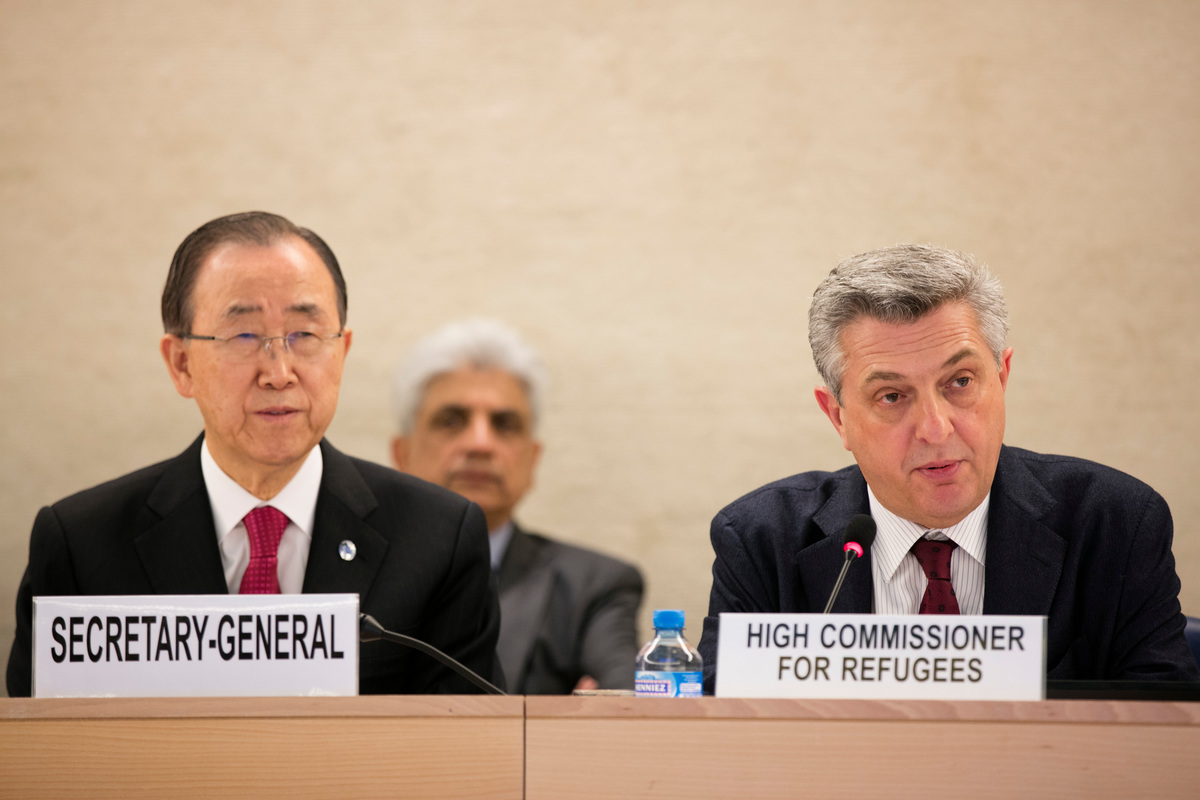Syria: Doubling of refugees fleeing to Jordan
Syria: Doubling of refugees fleeing to Jordan
The pace of arrivals from the Syrian border to the Za'atri camp in the north of Jordan has doubled in the past week. 10,200 people arrived in the seven days between 21-27 August compared to 4,500 the previous week. More than 22,000 people have been received at Za'atri since it opened on 30 July.
Refugees say many thousands more are waiting to cross amid violence around Daraa and we believe this could be the start of a much larger influx. Some of those who have crossed in recent days (especially Friday) report being bombed by aircraft. There are also reports of shelling, mortars and other weapons-fire.
Typically, refugees cross the border at night and are taken straight to the camp by IOM and the Jordanian army. But 1,147 refugees arrived yesterday (Monday) morning and were followed by another 1,400 overnight and early this morning.
Most of the arrivals over the past week have come from the governorate of Daraa, including the villages of Mahjeh, Kherbet Ghazala, Tafas, Dael, Hrak, Al Sawar (also known as Sura), Msefria, and Hayt. Many refugees report being displaced up to five or six times inside Syria before they fled the country.
We have received in the camp over the past week an increased number of unaccompanied children. Some children report that their parents have died, or are staying behind in Syria to look after relatives, or are working in other countries. Some children, who did not have passports, said they were sent ahead of their parents who will follow later.
UNHCR, alongside its partner the Jordan Hashemite Charity Organization, is racing to meet the humanitarian needs of the rapidly expanding refugee population at Za'atri with shelter, food, water and healthcare. We are urgently pitching more tents and expanding the camp, preparing new ground with a base course of fine gravel to help control dust at the site. Seventeen trucks have been dispatched from our regional warehouse in Zarqa to reinforce stocks of tents and blankets.
The fast pace of arrivals has affected our efforts to improve conditions for the existing population, but work on this continues. Over the past few days our staff and NGO partners have been identifying people among the refugee population to serve on committees so refugees can be involved in the running of the camp. We are planning to build a second road into the camp to ease congestion on the narrow road which currently provides the only entry and exit point.
Lebanon
Our operations in Lebanon are returning to normal with some improvements in the security situation over recent days. Our registration centre in Tripoli has reopened and refugees are now making use of this. Distribution in the north was disrupted but with the reopening of the northern highway over the weekend our trucks can now deliver relief items to our hubs in Qobbayat.
In the Bekaa valley, our distribution, registration and field visits have resumed. With the new school term about to start, we are urgently trying to relocate refugee families staying in schools who are coming under increasing pressure to leave ahead of the new school term. Last week, UNHCR submitted a list of 11 abandoned schools in the East to education authorities seeking permission to relocate refugees there and we hope to receive government permission soon.
In the North, UNHCR has found an alternative shelter for families staying in operational schools. The building is a disused private school with 47 classrooms and needs only minor refurbishment. Families are expected to be relocated over the coming week.
Across Lebanon, more than 54,000 people have registered with UNHCR or have appointments to be registered. Among this population, some 22,000 are in the North, with more than 16,600 in the East, and almost 1,300 in Beirut.
Syria
In Syria, there is urgent need to find alternative shelter for the increasing number of displaced people staying in schools due to resume classes on 16 September. Local authorities are finalizing a list of possible collective centres and UNHCR stands ready to rehabilitate buildings to shelter people who have been forced to leave their homes. Across Syria 350 schools are occupied by displaced people, according to the government, which estimates more than a million people are sheltering in various public buildings.
For the newly displaced over the Eid period, the urgent needs have been food, clothes, mattresses, blankets, sheets and access to better sanitation.
In the past two weeks, UNHCR has helped 250 of the most vulnerable refugee families staying in schools in the Jaramana area of rural Damascus with urgent cash grants to help them find shelter, particularly where they have requested to leave. Local volunteers are helping them find apartments and basic furniture.
Despite the escalation of the conflict in Syria, our operations there are continuing. Our telephone hotlines and counselling services are proving critical tools to keep in touch with displaced people and offer them support when our movements are restricted due to the security situation.
Iraq
In Iraq, the Al-Qaem border crossing has been closed since 16 August and there has been no increase in the number of Syrian refugees, which remains at 15,898. While the Al-Waleed and Rabiya border crossing points remain open UNHCR is advocating with the government that the Al-Qaem border be reopened. We are ready to increase capacity in the camp or provide shelter for refugees elsewhere. The Al Qaem camp currently hosts almost 2,000 refugees and is being expanded. Another 1,700 refugees staying in schools are expected to be relocated to the camp very soon to allow classes to resume.
Turkey
In Turkey the number of Syrians arriving at the border has increased dramatically. Compared to previous weeks, which saw around 400-500 people arriving daily, up to 5000 people have been arriving at the borders every day over the past two weeks. In the past 24 hours over 3000 Syrians are reported to have crossed into Turkey, with a further 7000 expected to cross in the coming days. The 3000 crossed at the Kilis, Yayladagi and Reyhanli border crossings. A new camp, Karkamis, in Gaziantel province, has been opened and many of the new arrivals are being transferred there. The Turkish authorities plan an additional 5-6 camps, for a total overall capacity of up to 150,000 people. UNHCR and partners are providing technical support and aid. A UNHCR airlift filled with tents arrived at Adana early today. An increase in international support is vital to back Turkey's efforts to keep pace with the large numbers of Syrian refugees seeking refuge there.
Cyprus
UNHCR is concerned to learn of the deaths at sea of seven Syrians aboard a fishing boat that sank off the north coast of Cyprus late last week. The boat was carrying four men, one woman, and two children according to the coastguard. Two further people on board, believed to be people-smugglers, reached safety and were later arrested.
Statistics
214,120 Syrians have registered as refugees or were awaiting registration as of August, 26. Details by country, as follows:
Jordan
Total registered = 69,968 {including 24,681 awaiting registration}
Some 80,000 people have been identified by local organizations as in need of assistance (including some who have registered with UNHCR).
Of the 24,681 awaiting registration 19,274 are at the Za'atri camp, and 5,407 are awaiting registration outside Za'atri camp.
Lebanon
Total registered = 54,142 {including 13,910 awaiting registration}
Thousands of refugees who have recently arrived in Lebanon have not yet come forward for registration.
Iraq
Total registered = 15,898 {including 2,042 awaiting registration}
The number of Iraqi returnees from Syria has reached 29,453 since July 18.
Turkey
Total registered = 74,112 {registered and assisted as per government data}
For further information on this topic, please contact:
- In Amman: Ariane Rummery on mobile + 962 796552045
- In Geneva: Adrian Edwards on mobile +41 79 557 9120
- Melissa Fleming on number +41 79 557 91 22
- Sybella Wilkes on mobile +41 79 557 91 38

